A Season Close to Home
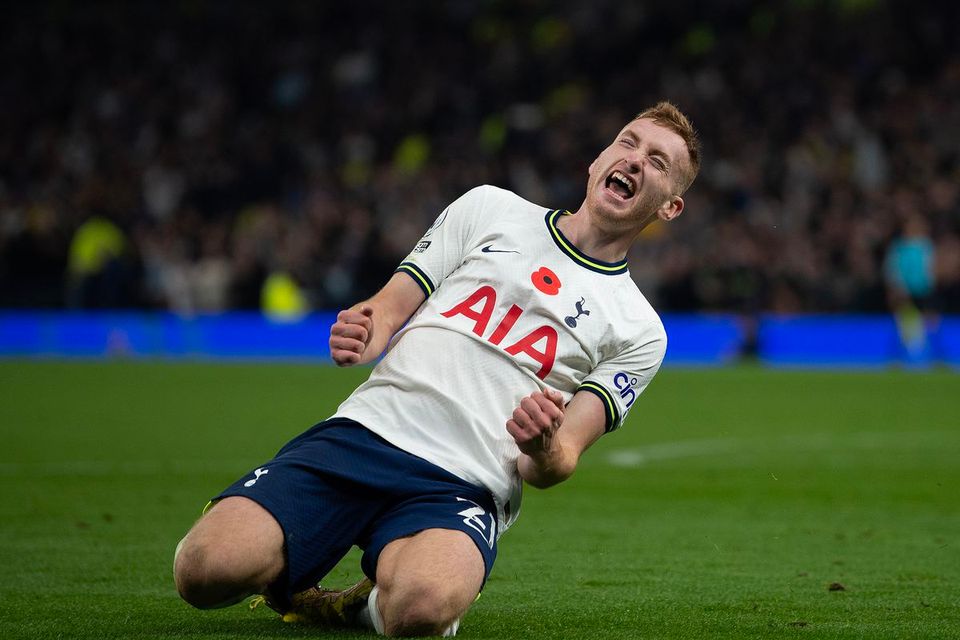
Spurs Men will have their first season without European competition in a long time, so the newly released Premier League fixture schedule paints almost a complete picture of the upcoming season. Domestic cup fixtures will be sprinkled in, but otherwise, the next campaign is already coming into sharp focus.
We also got news of a new contract for Dejan Kulusevski, who had previously been at Spurs on an 18-month loan. It's good to have his future at the club locked in.
I'll get into both of these new items below, along with a roundup of transfer rumors (both lingering and quashed) and some thoughts on how Saudi Arabia's sovereign Public Investment Fund is altering the global football landscape.
I waited to publish this issue today hoping that we'd get a Friday news drop for something, anything about the Women's team, but it's still crickets.
In this issue: Premier League fixture schedule release | Squad talk: Spurs Men updates | Saudi Arabia's PIF and sportswashing
2023/24 Premier League fixture release
I realize it's somewhat ironic to call this "a season close to home" when the first, last, and Boxing Day fixtures are all away games. It's a shame for the local fans that all of those marquee games are happening away from Tottenham Hotspur Stadium. Surely it should be baked into the scheduling algorithm to ensure each club gets either one or the other out of the first and last fixtures as a home game? It's only fair. I suppose this year's away fixture for Boxing Day isn't too bad for Tottenham-based fans, since Brighton is one of the closer away trips.
For me, I just hope there aren't too many 6am kickoffs for my local time zone. They never get any easier for someone like me who is decidedly not a morning person.
Here's the full fixture list:
Our #PL fixtures for the 2023/24 campaign have landed 🛬 pic.twitter.com/7IIDtVTFXm
— Tottenham Hotspur (@SpursOfficial) June 15, 2023
I don't think the start of the schedule is as troublesome as many have claimed. With the exception of Manchester United (which is at least a home fixture) and Arsenal and Liverpool in September, all of the clubs we play in the first three months are teams that we should, in theory, be at the same level as or above. In fact, Brentford away could be a really useful fixture to start the season with. It's a minor London derby, a team that took four points off of us last season, and potentially a matchup with our new keeper's former team (contingent on actually signing David Raya, of course, which is now looking much less likely). What more motivation could we need to kick off the season with a win?
While the schedule is pretty balanced overall, there are two extended stretches that could prove difficult. November will not be an easy month, with a major London derby against Chelsea, tricky Wolves at Molineux, and last season's rivals for a European spot in Aston Villa. Then we head straight into a tough start to December, with a trip to the Etihad to face Manchester City, the never-fun derby with West Ham, and the PL's villains du jour in Newcastle United. The second trying stretch will be the run-in to the end of the season. From mid-April on we face Newcastle United away, Manchester City at home (at least we know they won't score), and Arsenal, then head into May with the dreaded trip to Anfield to face Liverpool. The final two matches could be high-stakes if Burnley and Sheffield United are in the relegation race—or if we're trying to scrape a European qualification spot.
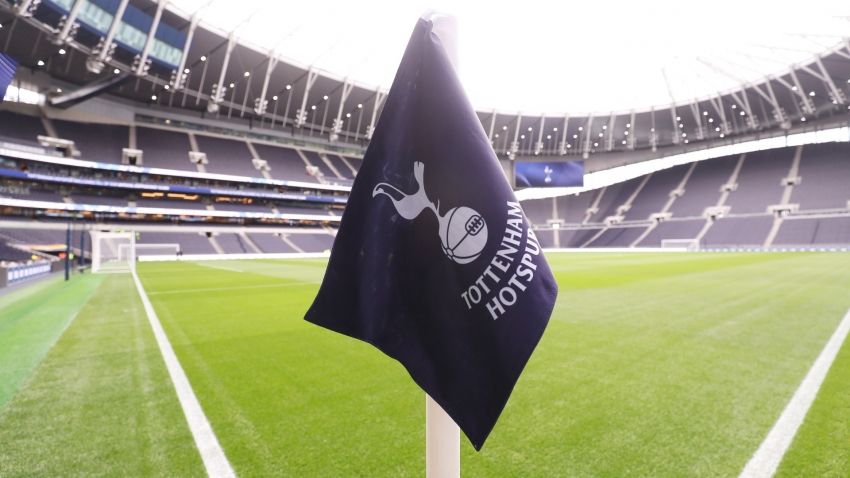
This early in the transfer window, it's hard to accurately predict any of these fixtures. We don't yet know who will be strengthening, who will be weakened, or who will have failed to change their status quo at all. The same goes for our own squad for now. Several teams, Spurs included, will also have new managers that could change their fortunes for the better or worse. So while it's exciting to have the fixtures (roughly) in the calendar, TV broadcast tweaks aside, it's best not to get too worked up over the order just yet.
One final thing to note: we'll be playing an additional round of the League Cup since we aren't in European competition this season, so that'll provide some extra intrigue early in the fall.
And not a scheduling note, per se, but the Men's U21 team have escaped relegation thanks to the Premier League 2 reformatting. As Dustin notes in his article for Cartilage Free Captain, it makes sense to have a closed league at the development level so that Academy players can focus more on growing their skills than on prioritizing results.
Squad talk: Deki stays, other loanees to leave
When Dejan Kulusevski joined the squad on an 18-month loan two January windows ago it already seemed like a steal of a deal. He was seen as something of a diamond in the rough—Juventus is the "rough" in this metaphor, and boy are they these days—who had just needed a new environment to truly shine. Now that he's staying at the club on a permanent contract it's an even better deal; the club was able to negotiate the transfer fee down by €5 million. This was possible because the obligation to make his loan permanent became only an option when we failed to qualify for the Champions League. So rather than the €31 million obligation or the €35 million option, Spurs got it done for €30 million. Not bad business at all!
Deki will now be under contract until 2028.
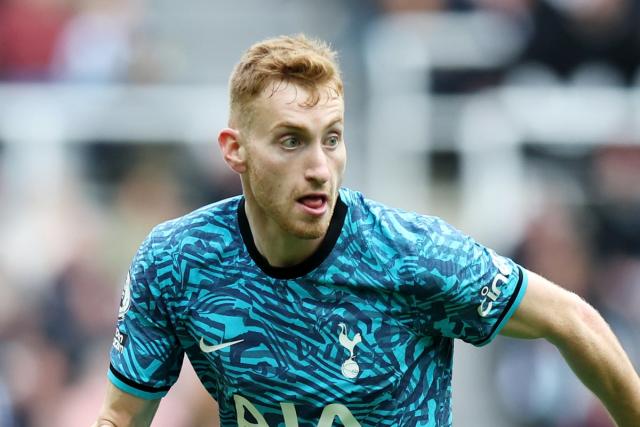
It's possible that he will need to find another dimension to his game to flourish under Ange Postecoglou's management. This could mean converting to an attacking midfielder role or simply adding layers to his current performance at wide forward. And it's not just down to Ange's arrival, either—already this past season he was less effective than in his first six months at Spurs; opposition defenders had started to suss out that his preferred movements were rather predictable and therefore easy to plan against. Lest I sound too harsh, this is a natural problem for a player of his young age and still relatively new status in the Premier League. If he didn't develop his game in the seasons ahead, I would be concerned. But he strikes me as an intelligent player as well as one with the technical skill to make those kinds of adjustments without losing what makes him special. Onward, Deki!
We barely knew ye
Meanwhile, the other players who had been on loan, Arnaut Danjuma and Clément Lenglet, have officially departed the club at the conclusion of their loans. We'd already seen the writing on the wall with Danjuma since he kind of spilled the beans on social media, but I was somewhat surprised that Lenglet was not offered a permanent contract...yet. Of course, the club still could bring him back on a new contract, but why not before the serious "thank you for [your] service" update was shared? Perhaps it's because the rumored fee to sign him from Barcelona would be €5 million and that's exactly the amount saved by renegotiating the option for Deki's contract.
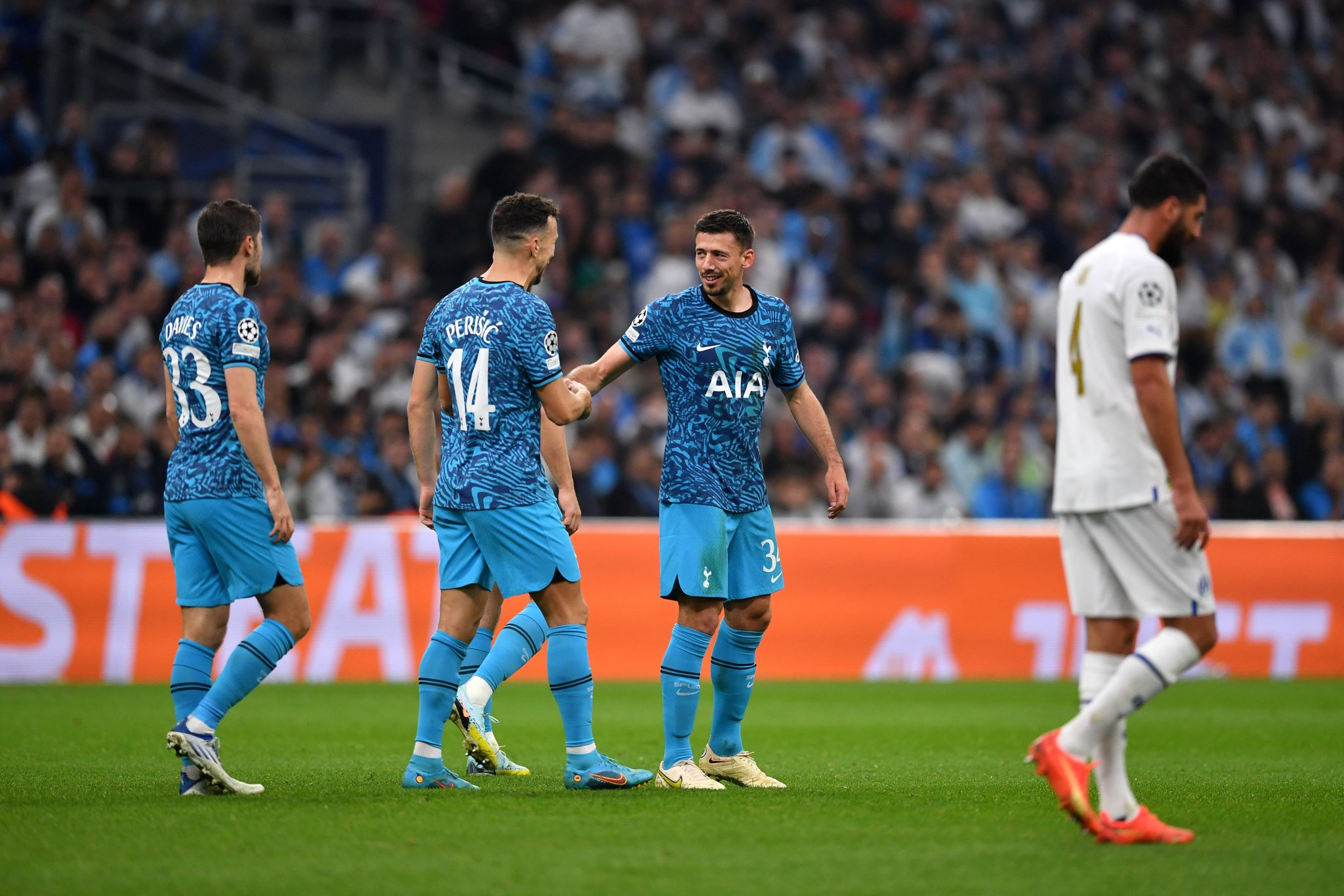
From a squad planning standpoint, I personally think it makes sense to bring him back for now, even if only on a short contract of a season or two. The overall squad rebuild is going to take more than just a transfer window or two since there are so many players who need to be moved on before new players can be brought in, and therefore some decisions must be made about who we can make do with for the time being versus who would do more harm than good if they stayed. Lenglet has been a relatively stable presence in the backline this season and is far from being one of the most urgently-needed departures. And because he can play as a central center-back, that gives us some breathing room to instead recruit for a more pressing positional need, that of a left-footed center-back/full-back.
And shoot, for €5 million? That's a bargain for a player who is already familiar with the club setup and the teammates who will be sticking around. It's a no-brainer to me.
Sundry transfer rumors
There have been quite a few rumblings on the incoming transfer front. I won't get into them in any detail, but will at least mention a few of the rumored targets:
• a possible double deal for James Maddison and Harvey Barnes from Leicester City, though Maddison alone has been more heavily linked and supposedly leaning more towards joining Spurs than Newcastle
• promising youngster (and Spurs fan, apparently) Alex Scott from Bristol City (probably more of a squad player at the moment than a potential starter)
• possibly not David Raya for goalkeeper after all; at first that leak seemed to be just a negotiating tactic from Spurs to put pressure on Brentford to lower their price, but now it looks like a surprise move for Empoli's Guglielmo Vicario is close to being completed instead
• Bundesliga up-and-comer Edmond Tapsoba from Bayer Leverkusen for center-back (right-footed but can play inverted, and a consistent starter at his current club)
Hopefully we will get at least a couple of these incoming transfers completed before pre-season begins.
God bless Son Heung-min
...for confirming he has absolutely no interest in joining a team in the Saudi league (Al-Ittihad, to be specific—which I just realized is the club that our former manager Nuno Espírito Santo now manages).
FULL quote from Son on Saudi rumor (with addition)
— Sungmo Lee (@Sungmo_Lee) June 20, 2023
"I have many things to do in PL. Money doesn't matter to me now, and the pride of playing football, to play in my favorite league is important. I want to play more for Tottenham in PL, I'll prepare well when I'm back to Spurs." pic.twitter.com/GDcnYlmqXf
I wanted to believe that such a move would be out of character for him, but as I have had to learn the hard way in over two decades of sports fandom, you can never truly know your favorite players' hearts and minds. (Two words: Kawhi Leonard.) So believe me when I say that I let out an audible sigh of relief when I read this quote. I am so thankful that Sonny didn't let us down.
As far as I'm concerned, Son could and should retire at Spurs. This is why no one is paying me to be a sporting director; there are certain players for whom I find it very hard to be objective and reject sentimentality. Sonny is definitely one of them.
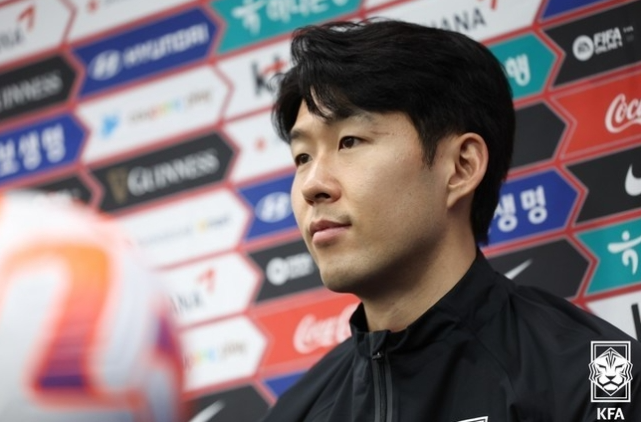
But seriously, good for him to be able to recognize that all the money in the world isn't worth sacrificing true competition and sporting integrity—values that the Saudi league cannot claim to hold (more on that in the next section).
Not to ruin this gratifying moment by bringing up Daniel Levy (I still haven't forgiven him for the "make the WSL a closed league" comments), but Tottenham's chairman has often spoken about how our club is purposefully doing its business differently from clubs like Manchester City, Newcastle United, and Chelsea by strictly adhering to the Financial Fair Play rules. It's hard to argue against the idea that such scrupulousness puts us at a competitive disadvantage in a literal sense to those clubs with their superteam rosters and a seemingly endless flow of investment—it undoubtedly does—but it does allow us fans to sleep at night knowing that our club isn't cheating. That is genuinely important to me. And as I always say, any potential future trophy won by doing things the right way and winning with a player like Sonny on the pitch would mean so much more to me than a treble that was bought by sportswashing.
On that note...
Pub chat: Saudi league sell outs
When I started the pub chat segment a couple of issues ago I had planned for it to be mostly light-hearted fare, but sometimes there are more serious topics I would like to talk about. This is one of them.
It's been a distressing couple of weeks on the sporting integrity front. I won't even get into how the potential PGA/LIV golf merger plays into everything, mostly because I am not a golf fan and don't know much about the intricacies of that sport's structure. But needless to say, football is not the only arena in which Saudi Arabia (the literal country) is flexing its influence.
I should start by saying that I have genuinely reflected on whether my discomfort with this whole situation is coming from a place of internalized Islamophobia. After reflection, I don't think it is. There are plenty of other leagues in majority Muslim countries that are not coming under the same scrutiny from me or from the wider football community, and for good reason. The main issue at play here is that it's not a matter of individual owners from the Saudi league getting involved in the Premier League (while the multi-club model that City Group, Red Bull, etc. employ has its own issues, there are currently enough safeguards for sporting integrity to make it tolerable) or that the owners are of a certain demographic or religion, but that an actual nation-state is the primary actor pulling the strings. I think that's something that should give us all pause, regardless of which country is in question.
The country of Tunisia, for example, is not bending ethical and financial rules to expand the popularity of its domestic league or exert influence over another nation's league. It's undeniably important for countries in the Middle East and North Africa to continue growing their football culture (the history of which is too often overlooked by those of us from outside the region) and make their federations more competitive in the World Cup—something Morocco, to use one example, has already done in an organic way. That being said, FIFA has put equality standards in place that it has a duty to enforce when it comes to international play, something it did not do with the World Cup in Qatar. For example, there were reports that the Qatari Women's National Team didn't play a single competitive game after their country gained approval to host the tournament, despite the development of their Women's National Team being a key requirement to getting that approval. There was also the issue of LGBTQ fans being mistreated and made to feel unsafe attending the tournament, when FIFA has stipulated that all fans must be made welcome at its tournaments. Progress has to be made in a way that benefits all citizens, from players to fans.
What Saudi Arabia is doing is unprecedented in scope and intent compared to other countries in its region and therefore worthy of closer scrutiny, in my opinion.
There are several key matters of concern around the Saudi royal family's influence in football vis-à-vis the sovereign wealth Public Investment Fund, or PIF:
• Ownership stakes in multiple clubs in the same league across two different leagues, the Saudi Professional League (SPL) and the Premier League
• Player movement to and between its clubs that takes advantage of loopholes in the Financial Fair Play (FFP) rules
• Questionable sponsorship practices, such as Newcastle's planned shirt sponsor
On the first point, news emerged that the Saudi PIF has an investment stake in Chelsea's majority owner, Clearlake Capital.
The Saudi PIF now owns majority stakes in each of these Saudi clubs and has also invested in Chelsea's majority owner Clearlake Capital. Chelsea co-owner Todd Boehly visited Saudi Arabia this month and now Chelsea are selling unwanted, high-earning players to these teams... https://t.co/5k7viacW0h
— James Nalton (@JDNalton) June 18, 2023
Obviously, having investment in Clearlake Capital allowed PIF to evade the Premier League's notice for having an ownership stake in two different PL clubs. Although Clearlake Capital has a majority stake in Chelsea, it can't be proven if PIF funding represents a majority or not since it's a diversified fund, so it's technically allowed for them to have a majority and minority stake in different clubs. Where this becomes a problem is when the two clubs use their common ownership to create loopholes in the FFP rules (more on that below).
There's a far more cut-and-dry example of conflict of interest in PIF's investment when it comes to the SPL, where the sovereign state now effectively owns the traditional top four clubs in the league. I highly recommend the below link from The Athletic, which is very balanced in its approach, to understand more about how and why this change came about as well as the implications.

The explanation of "internal sportswashing" is particularly illuminating. It's undoubtedly a positive for the growing young population of Saudi Arabia to have more opportunities for sports leisure, but there is a question over whether that boon is being spread equally (increased participation for women in sport has not been tracked and promoted the same as men's participation, for example). And as some scholars have noted, the country's government does not have solely altruistic motives around public health, but also a desire to placate its populace, some of which is less conservative than previous generations:
In terms of who is being sportswashed, up until now there is this view that people in Europe and Northern America have been externally sportswashed, but there is an argument that the bigger washing is taking place internally...
What Mohammed bin Salman and his advisors don’t want is gangs of 26-year-old guys taking to the streets and plotting the overthrow of the royal family because they have to live their lives differently to the rest of the world. -Simon Chadwick
In other words, the royal family hopes that getting to watch Ronaldo play every week will be enough to make its citizenry tolerate living in a surveillance state with limited freedoms.
But the bottom line is that the SPL cannot be credibly considered a fair league anymore. There are too many conflicts of interest with four teams under the same state ownership. While this move will allow those four clubs to attract increasingly high-profile talent to the league with the added investment, it will not do anything to improve the league's global reputation from a sporting integrity standpoint. They have effectively created a mini "Super League" within the larger league. One does have to assume that money is the main motivator for the players currently flocking to the SPL, not the spirit of competition—and money is not enough to sway players who actually care about playing at the top level, like Son and now Romelu Lukaku and Luka Modric as well. I had really hoped players would start making these kinds of refusals when Newcastle United was first bought by PIF and aggressively recruited with its newfound funding, but better late than never.
So now we get to the issue with the Premier League's own Financial Fair Play rules. The SPL is quickly becoming a dumping ground for expensive, long-term contracts that teams would like to rid themselves of, particularly at Chelsea. Their squad is bloated beyond reasonable repair if it weren't for this convenient, less-than-scrupulous avenue for offloading unwanted players on high wages. And with PIF now owning four clubs in the SPL, Newcastle and Chelsea essentially have four partnerships to benefit from in the same league rather than just the one that most multi-club organizations benefit from. Then there's the possibility of the SPL clubs acting as a middleman to grease negotiations between PL clubs, as we could potentially see with Ruben Neves reportedly going to Newcastle United on loan from his new club, Al Hilal. Neves has been open about the fact that he wants to play Champions League football, and while Wolverhampton may not have been willing to deal directly with Newcastle to enable his move (it's my understanding that this is a bit of a minor rivalry), they were more than happy to sell his contract to Al Hilal, at which point Neves' future was no longer in their control or their concern.
Ruben Neves: "I want to be here but I never hide that I want to play Champions League football. It’s a hard decision. Me and my family love it here, but in football, you have to go for your main goals."
— Dan Tracey (@dantracey1983) June 18, 2023
Also Ruben Neves: Set to join Saudi Arabia's Al Hilal in £47m deal 😂 pic.twitter.com/0HkSg746gR
Sure, that move to Al Hilal seemed funny in context with his statement about desiring to play in the Champions League at the time of his reported transfer a few days ago, but it's clear now that PIF is playing the long game. Perhaps Wolves knew that Neves' eventual destination would be Newcastle, but perhaps they were duped. There are never any guarantees that a player a club lets go won't end up on loan at another club, but the path was certainly eased in this case by PIF's connections. It's also worth remarking upon the fact that Neves' rumored move to Al Hilal initially seemed surprising since he is still a player in his prime, unlike most of the nearing-retirement superstars that have signed with SPL teams so far. An immediate loan to a different PL club helps the transfer make more sense for Neves.
It's a very tangled web at this point, one which will not be easily unwoven since the regulating bodies have thus far acquiesced to PIF. On a similar note, Chelsea's previous strategy for getting around FFP rules was to draw out the length of amortization for new contracts (landing them in this situation of having a bloated, expensive squad). The Premier League has now closed the loophole, but they will need to be more proactive in anticipating these, ahem, creative (read: unethical) measures in the future instead of merely dealing with them retroactively.
Back to the bigger picture, PIF is happy to facilitate these moves because it brings new talent to the SPL while enabling the PL teams to be more nimble in their summer transfer window recruitment. It's unlikely that Todd Boehly and Chelsea will have learned any lessons from their predicament since they have this failsafe to fall back on. Meanwhile, Newcastle can continue strengthening apace as other teams that were near the bottom of the table with them two seasons ago languish under the FFP constraints and lack of limitless investment.
At the end of the day, we have to remember that despite whatever economic modernization goals this business satisfies for Saudi Arabia's royal family, they are also engaging in sportswashing of the most cynical form. For every breathless transfer rumor around the SPL and every article that praises Newcastle United's promotion of its Women's team while women's football remains an afterthought in Saudi Arabia, attention is diverted from the Saudi royal family's totalitarian crimes. This is why I think we have a duty not to share that kind of complimentary medianot uncritically. We should question why obscene amounts of money are being spent to fast-track the SPL's route to prestige, just as we should ask who benefits from Saudi Arabia being perceived as a champion of women's football in England (it's not the women in Saudi Arabia, that's for sure). Media outlets will continue to report on these subjects because they have a base level of "newsworthiness," but we don't have an obligation to share it or accept it indiscriminately.
Agree with this thread from Sophie. Yes, you can’t begrudge the players the opportunity to go full time but we have to be honest about the fact that those salaries are funded by an ownership with ulterior sportswashing motives. Ppl want it to be binary good or bad but it’s both. https://t.co/6QAWKdOn5B
— Caroline Stefko (@cgstefko) June 23, 2023
A Twitter thread with some more thoughts around Newcastle United Women, who were just announced to be going fully professional this coming season despite being newly in the Women's National League (3rd tier).
The last point I wanted to bring up is one of such a transparent lack of ethics from PIF that it's almost laughable. PIF, of course, can't just push unlimited funding into Newcastle United directly because of the FFP rules. There are limits around how much investment can come in from a club's ownership relative to how much it makes from player sales. One simple way of getting around that constraint is to raise funds from outside sources, like Tottenham does with its stadium events or from a shirt sponsorship. Newcastle opted for the latter strategy by announcing a new front-of-shirt sponsor starting this coming season, Sela. The problem is that the sponsor, supposedly an events company based in Saudi Arabia, has been blatantly exposed as a front for PIF money. Check out their newly created website (and by newly, I mean after the news dropped about the sponsorship):
Phillpe this was this multi million pound companies website on the 24th of May this year and here's the incredibly slick "Who are we"page from yesterday
— Jim Burke (@Barcajim3) June 10, 2023
Absolutely screams that they are a serious company pic.twitter.com/0BczEyEWlg
The ironic part is that Newcastle was only compelled to change their shirt sponsor because its previous sponsor was a betting company, which is a) an issue for their conservative Saudi owners and b) not an eligible sponsor past next season by new PL rules to curb gambling sponsorship. Talk about jumping out of the frying pan into the fire—but only if the PL were to actually do anything about this farcical side-stepping of the FFP rules, of course.
I realize that was a lot of words about a topic that (so far, knock on wood) doesn't strictly involve Tottenham, except insofar as it affects all of the non-Saudi-owned teams in the PL. But I felt like it was important to gather all of the different issues together in one place to highlight what a monumental problem PIF's involvement in the PL already has been and will continue to be in the future. It's not an exaggeration to say that they are creating an unequal playing field in the league that Spurs compete in. How do we combat that disadvantage? Well, hopefully by retaining our values as a club and compensating with smarter recruitment, better coaching, and an elite mentality from the playing squad. Not easy by any means, but preferable to the alternative if you ask me. And as Chelsea proved last season, reckless spending doesn't always lead to good football outcomes on the pitch anyway.
COYS

Thank you for reading!
If you’re enjoying the newsletter, make sure to sign up for a free subscription to receive new issues in your inbox, or upgrade to a paid membership to unlock additional bonus content every month. You can also buy me a Ko-fi for a one-time tip. Your support keeps Spurs Across the Pond running and is much appreciated.
You can also find me on Twitter and podcasting at N17 Women and The Tottenham Depot


Member discussion